Nakamichi CDP-2e
this is a ver
interesting player. Made by Nakamichi, which was the only company that
I have seen so far apart from Meridian in their Meridian207 player,
that deviated from Philips data-sheet and created own player around the
allmighty TDA1541A chip (not S1 sorry). All other manufacturers more or
less remained loyal to the Philips specification in the datasheet.
Well, I may be an anarchist but people shoud be more creative. The
bloody data sheet was created PRIOR to chip launch as an example only.
Philips chip people could not have the slightes idea how it will be
used and HOW IT MAY SOUND. They were just IC chip engineers with all
due respect. So why noone of the OEM's had the guts to challenge the
paper and make
a BETTER APPLICATION of the chip ? I don't know really.
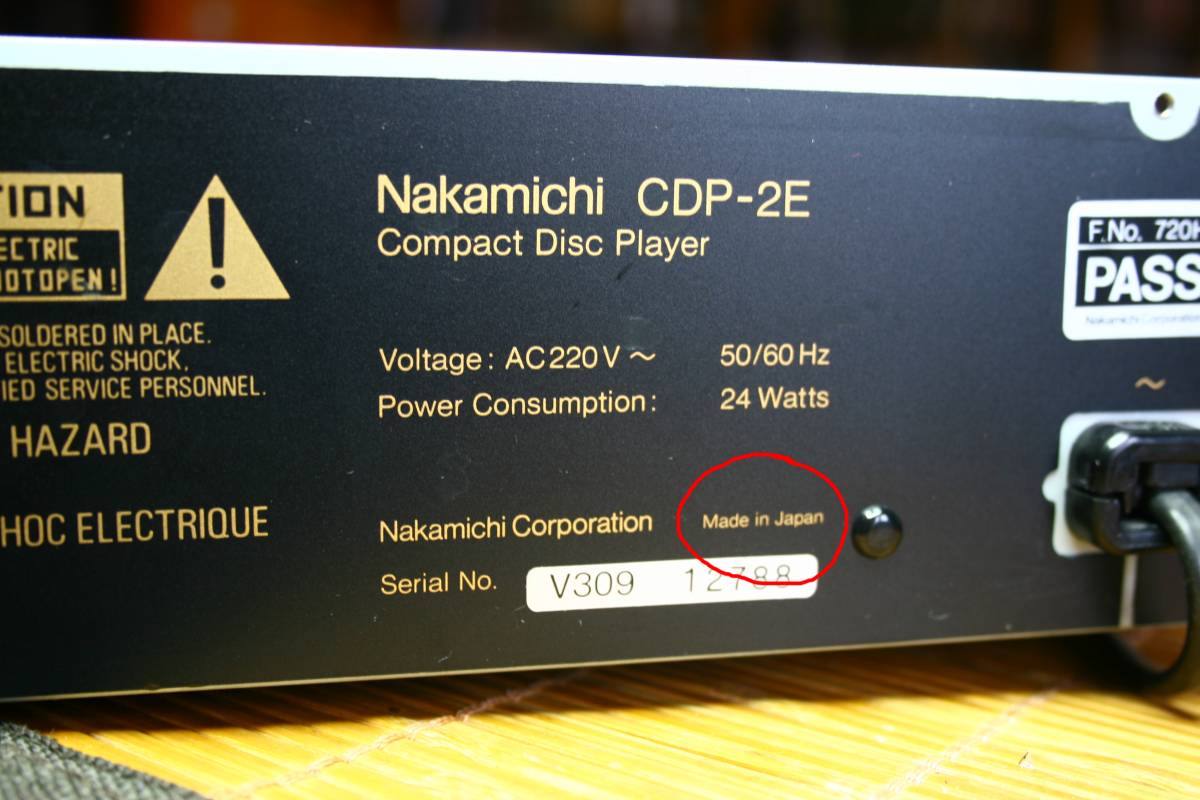
What a fool I was, I forgot to take frontal shot !!! So we see only the
ass side of the player. No digital output on this one.
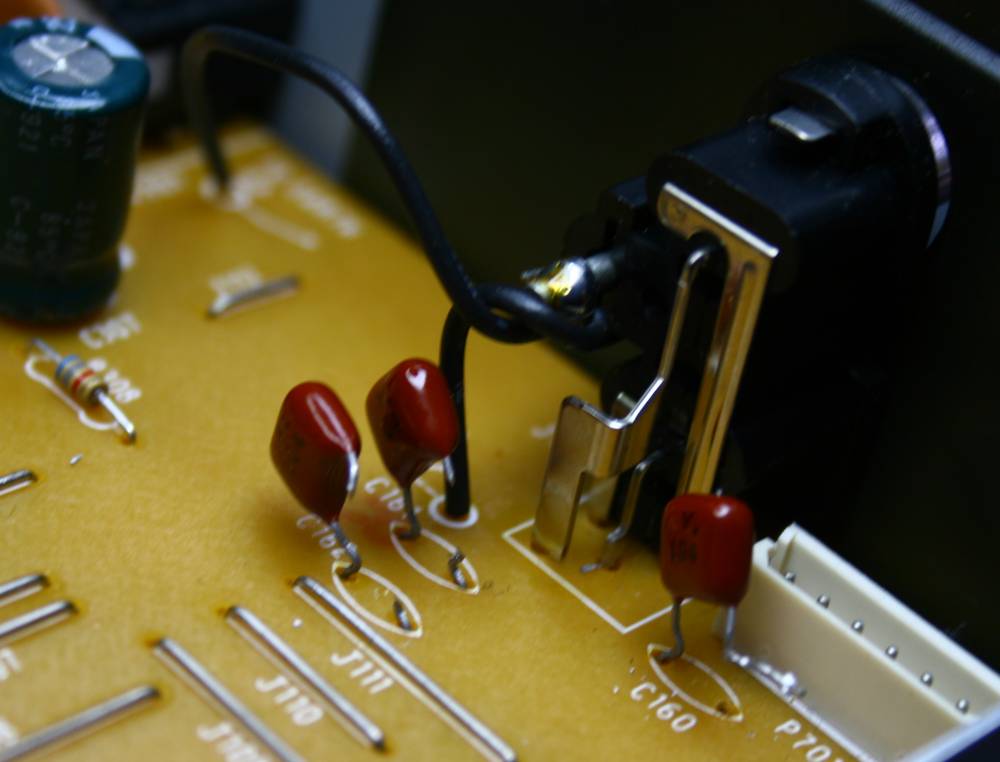
A classical case of noise killing and treble muting caps next to RCA
output - now snipped. This already improves the sound by much.
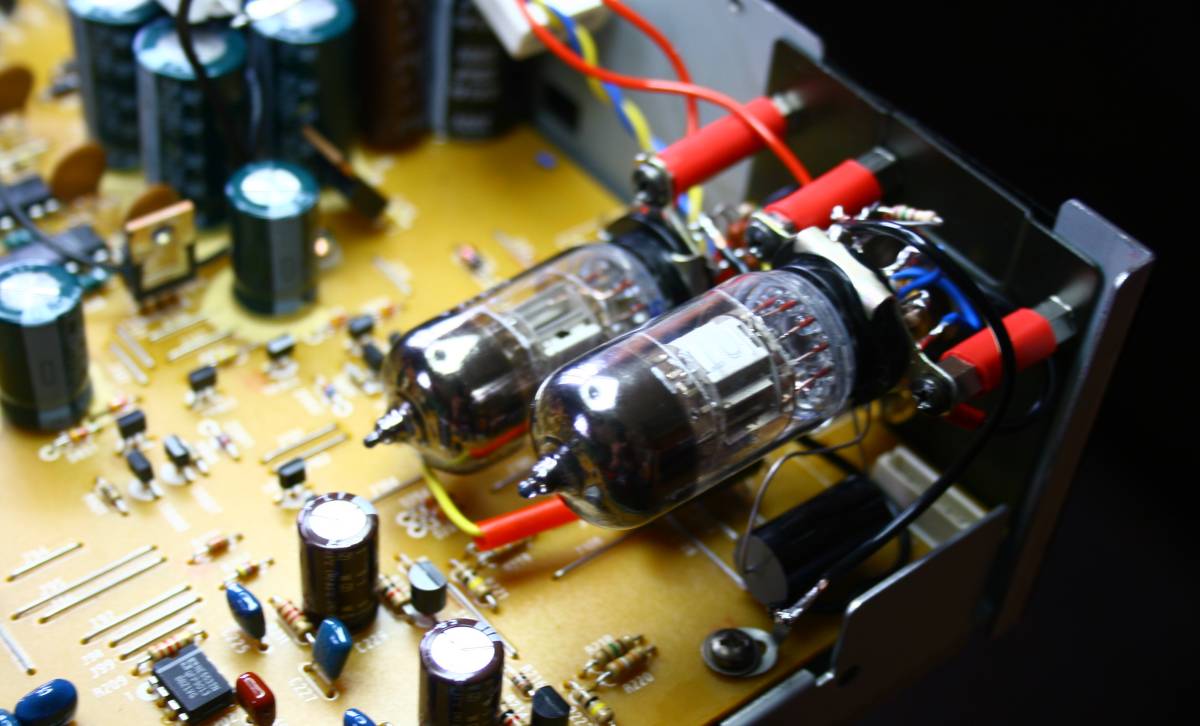
Lampizator section completely replaces the entire analog stage of this
Nakamichi CDP2-e player. Tubes are russian 6N2P-EW - the best tubes for
TDA1541A chip !!!
No much space, but it is doable.
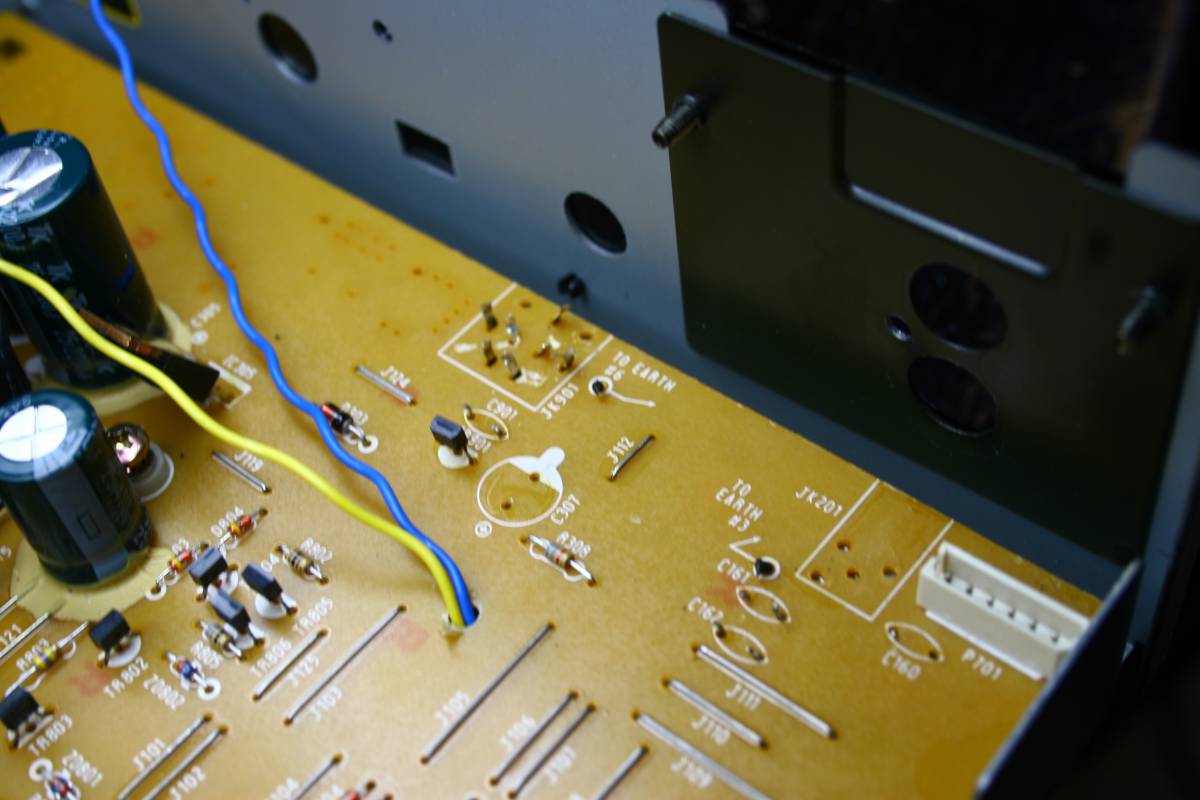
I removed some components - namely the system remote link to make room
for tubes.
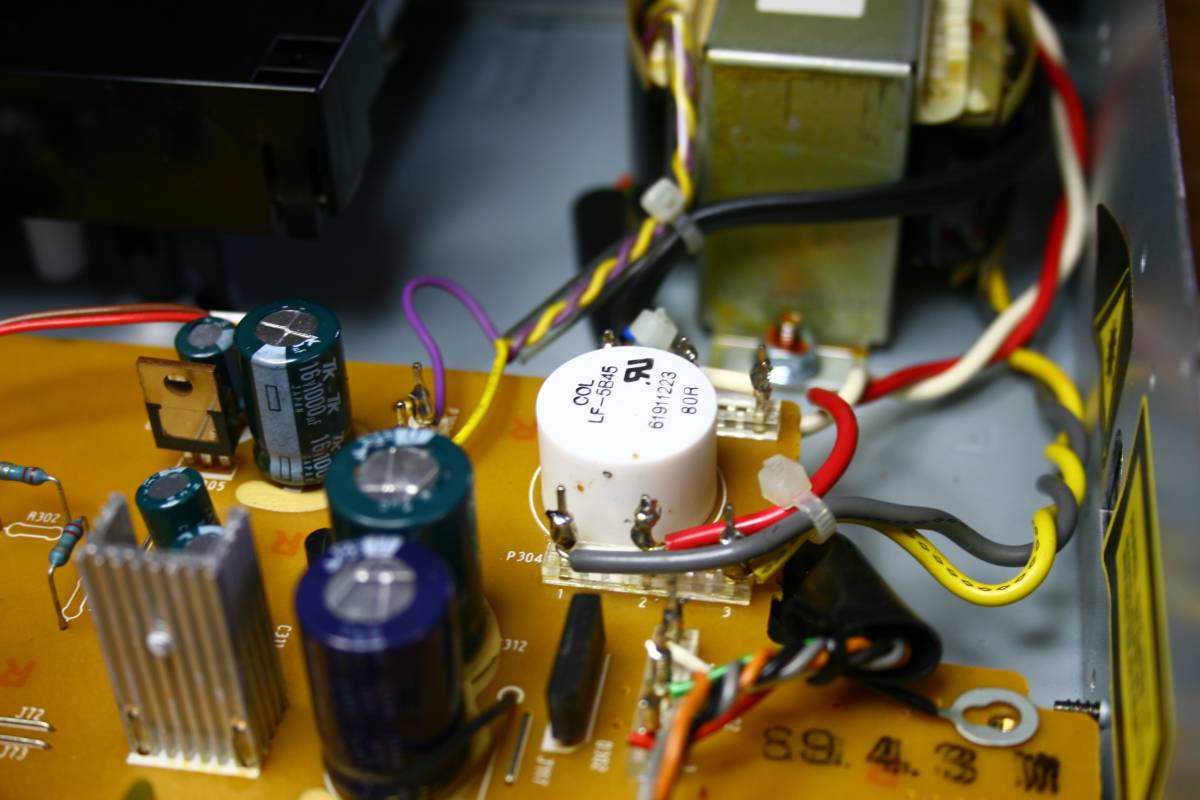
The original power supply input from transformer has a nice feature -
the white inductor for noise filtering. Very good practice to be found
in costly players only.
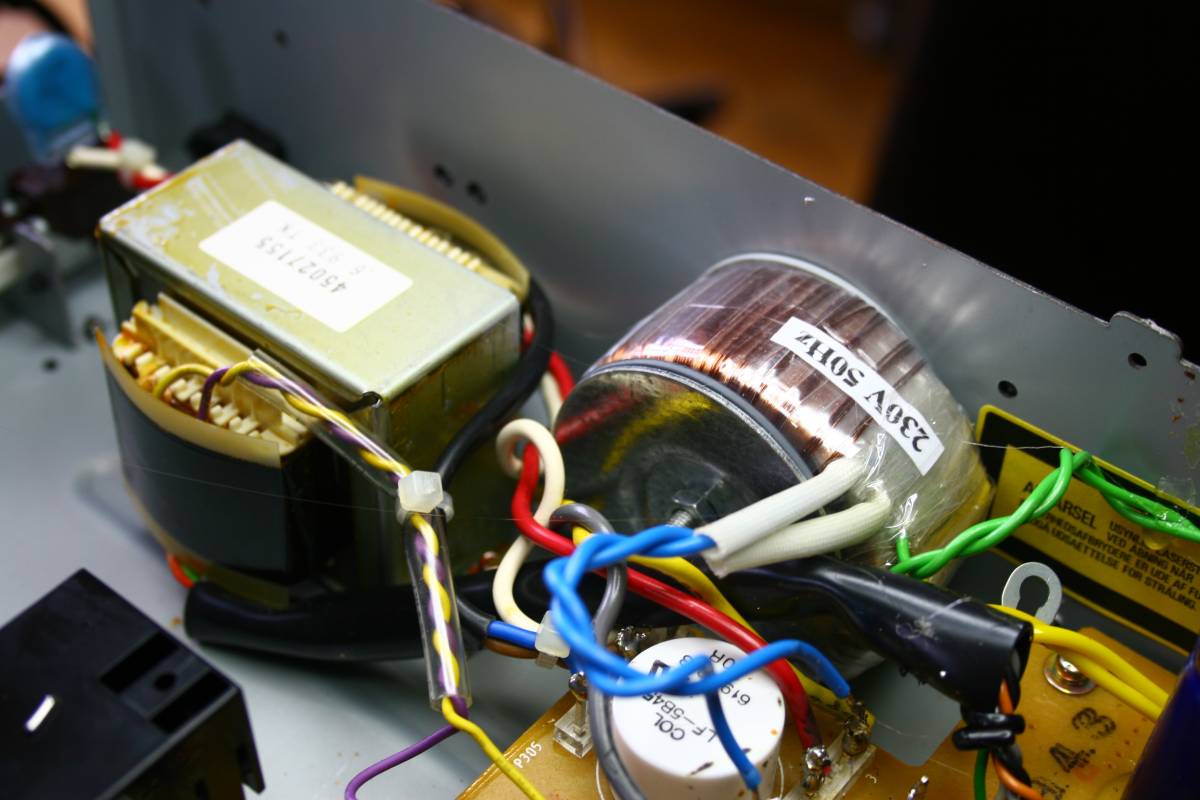
The transformer of Lampizator fits nicely. The blue wires go to AC
power stealing points.
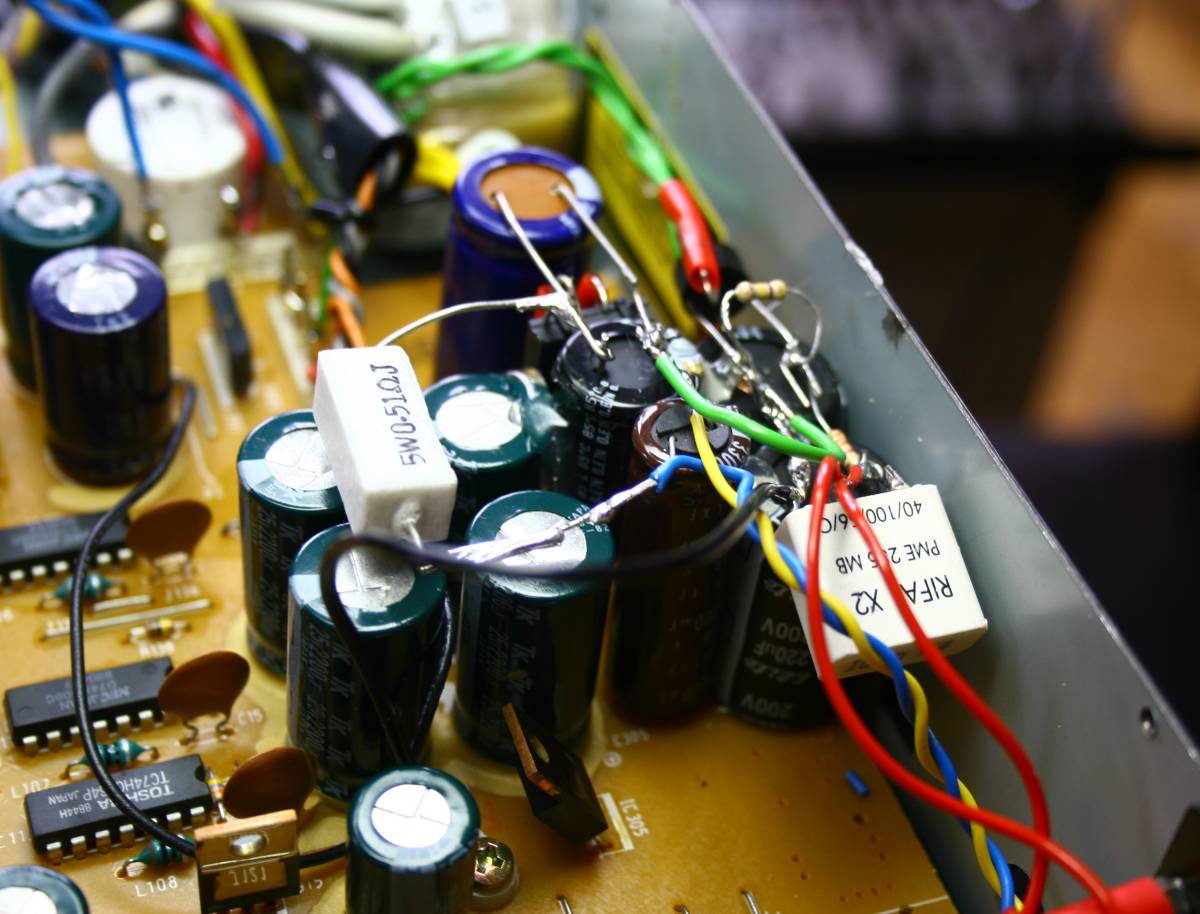
The DC power and filters fit near to Nakamichi's power caps, glued by
hot melt plastic glue.
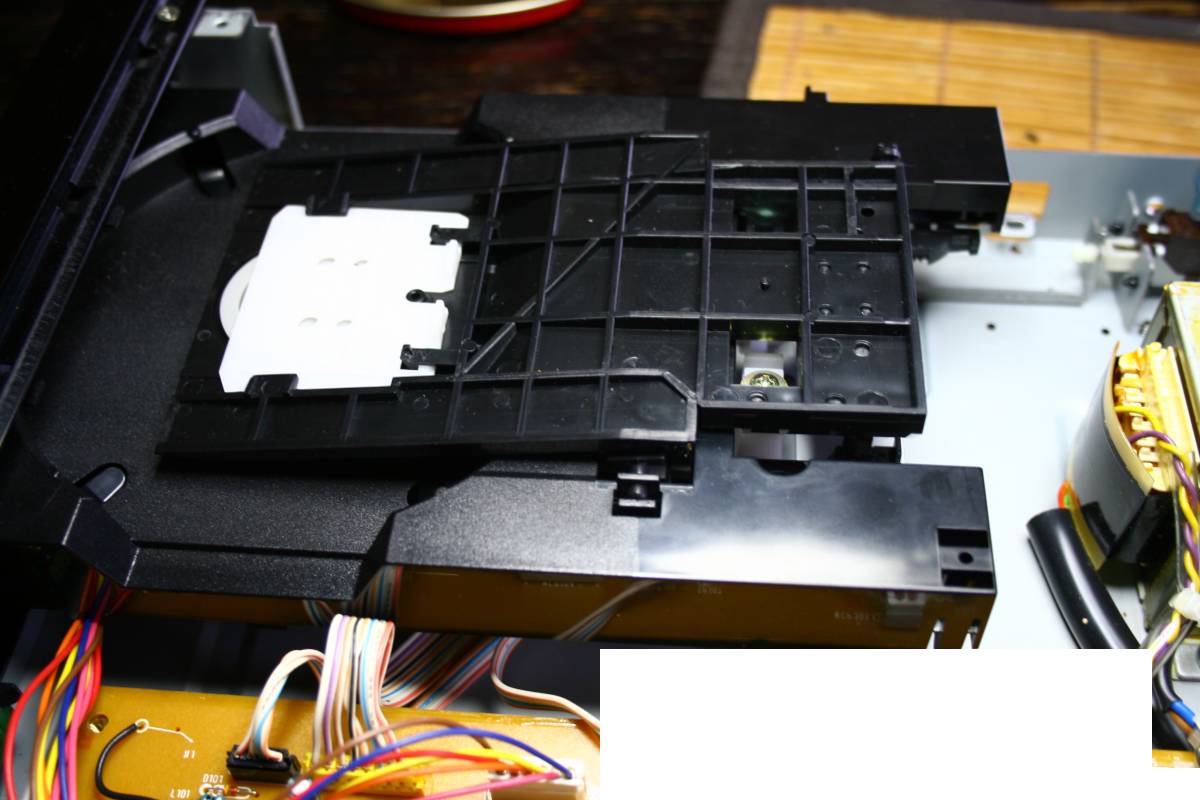
The mechanism looks like a Sony KSS210 but I cant verify it. A nice
cheap plastic mechanism. Reads everything in miliseconds.
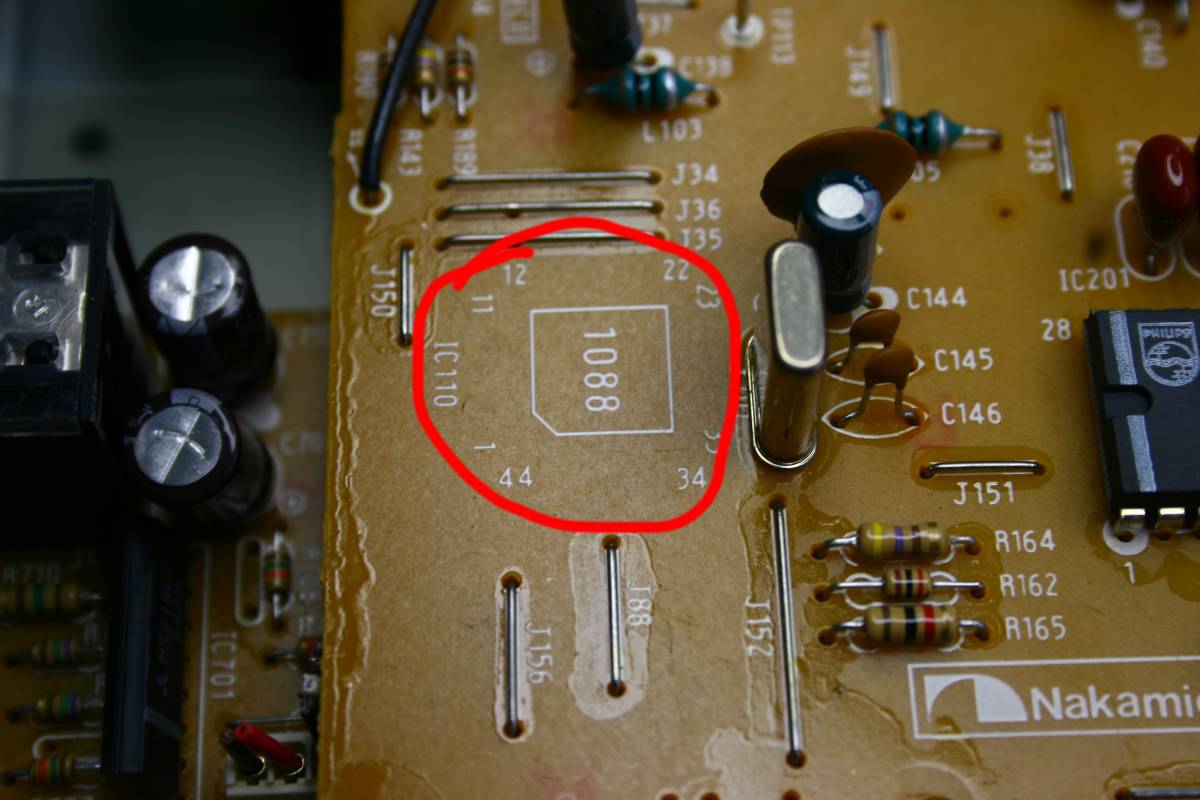
This red circle shows where the digital filter and oversampling chip
(Sony CDX1088) sits underneath.
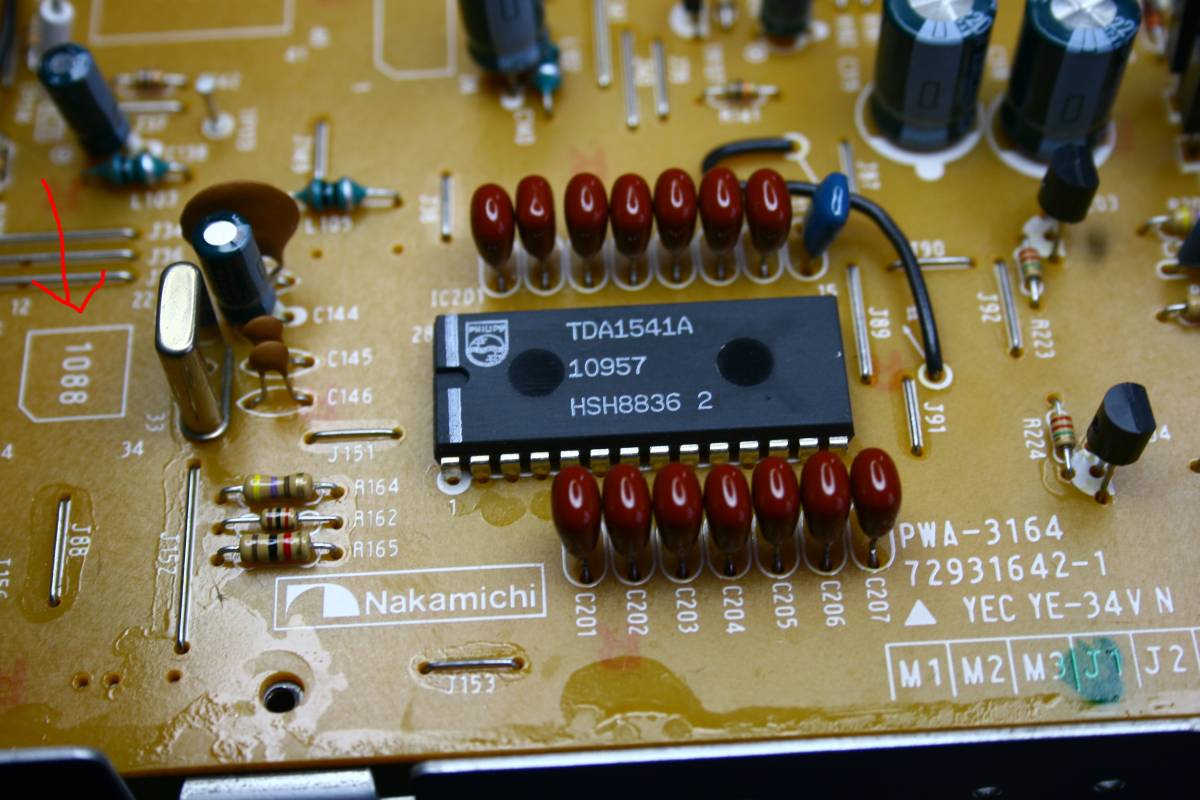
My favourite DAC chip TDA1541A in very nice application here.
Decoupling caps don't need upgrade. The clock nearby could be upgraded.

Two regulators which supply only the TDA1541A, nothing else, and
they are very close. GOOD SIGN !!!
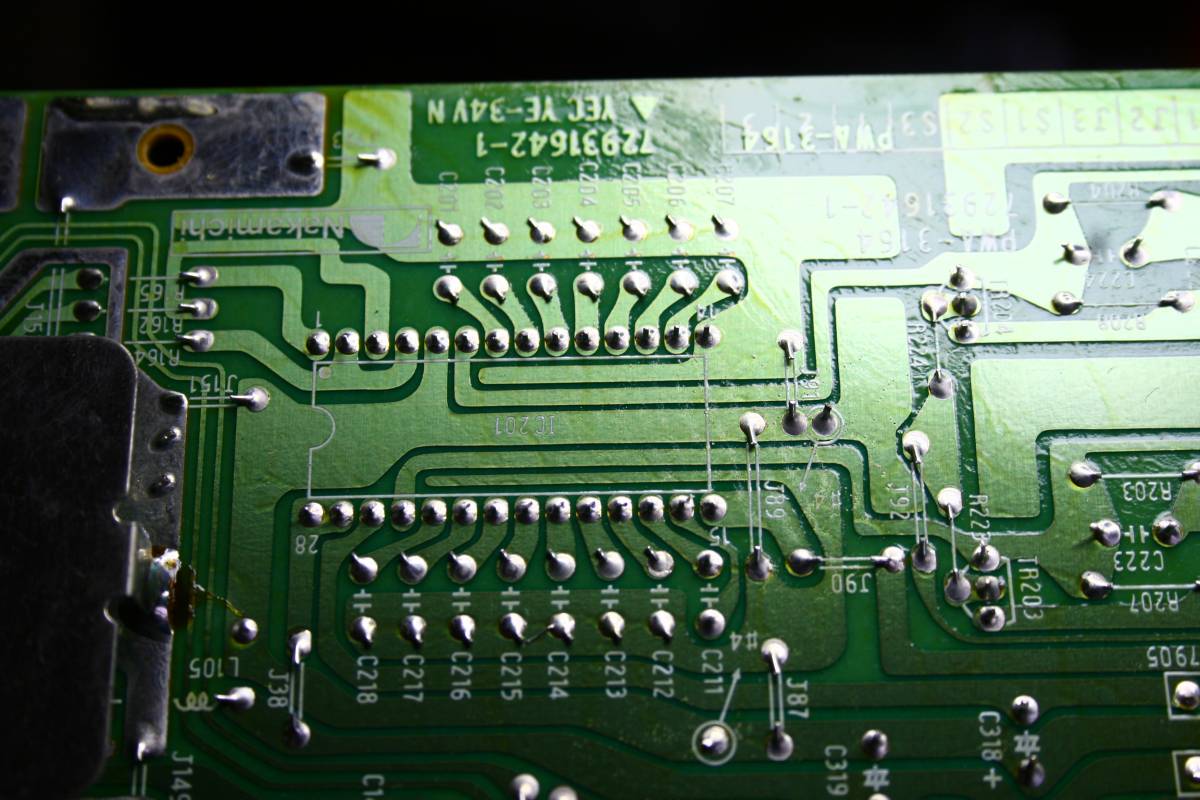
Bottom side of TDA1541A chip. Ready to be floated pins 6 and 25 of
course !
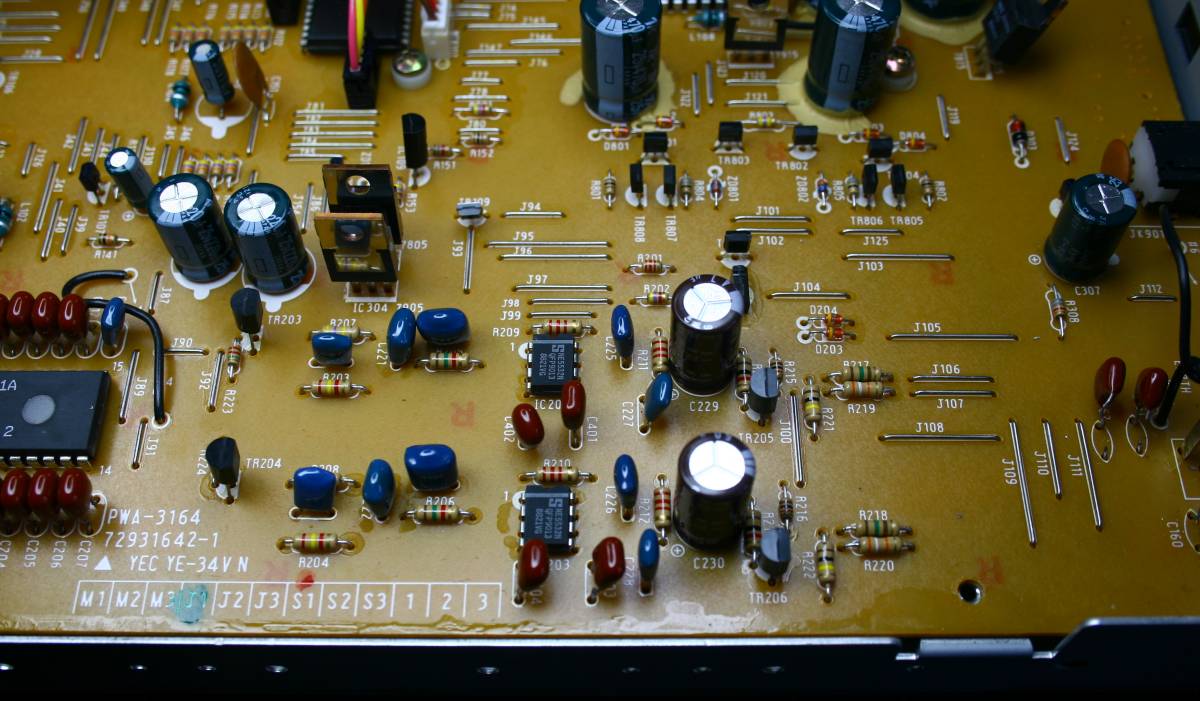
This is the analogue stage - two double opamps and a lowpoass
filter plus muting transistors. This will all be replaced by Lampizator.
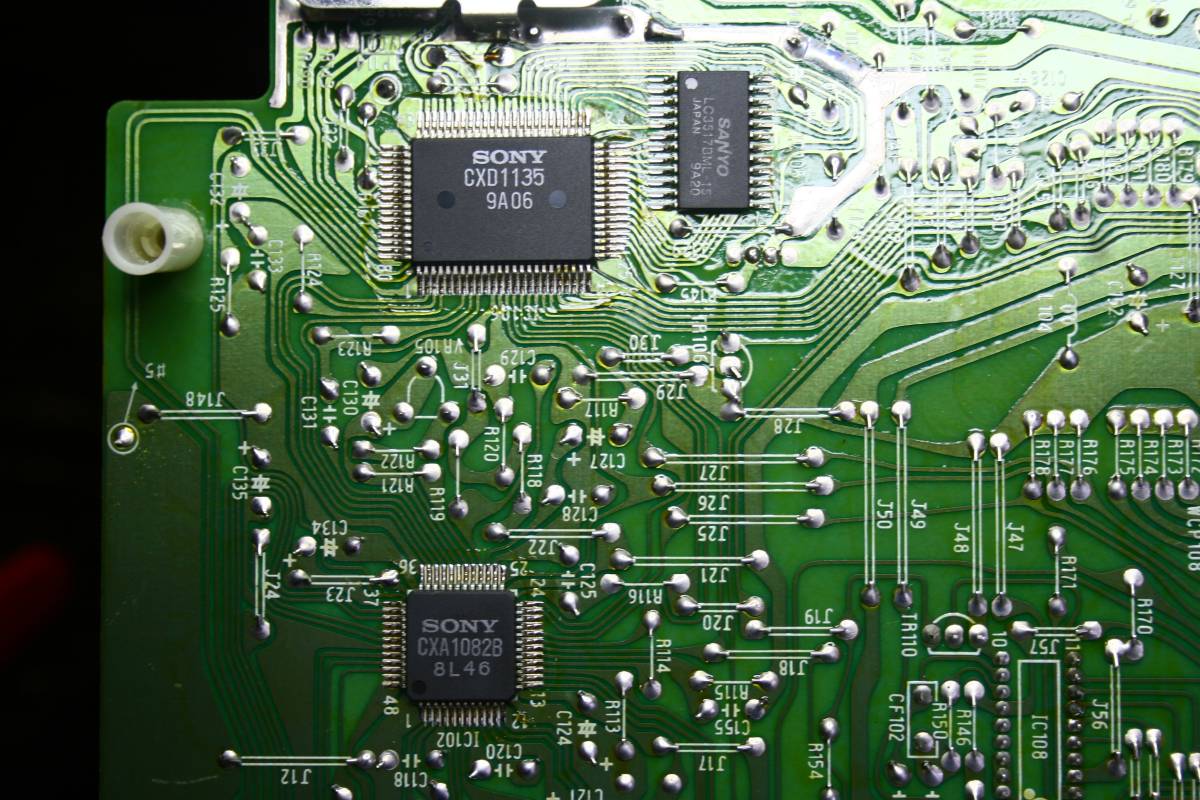
Back to
Nakamichi CDP2-e
Yamaha , Sony and Sanyo chips have been used instead of CHIP A and Sony
digital filter
CXD1088 with oversampling function - just like CHIP B from Philips has
been employed.
The output is a neat and SWEET SOUNDING : a one opamp job. Thats
nice of you guys, thankyouverymuch.
At the time of writing - this Nakamichi CDP-2e player is overall the
second BEST
sounding CD machine in stock form , loosing only a hair to the Arcam
CD73 (with Wolfson DAC chip) , and among the other TDA1541A players -
it is THE BEST ONE in stock form.
It is very strange, because the player has understatement looks, it is
light, small, and not too impressive. Apparently NAKAMICHI engineers
did something very right that differenciates it from all of the other
TDA1541A players out there, including top MARANTZ machines.
Will this extra bit of quality still be present after lampization ? Or
was it resulting from the significantly superiour output stage ?
Well, LETS FIND OUT !
Lampizator
meets the Nakamichi for the second time.
Lampization of this palyer is a real pleasure. I decided to keep as
much of the original sound (parts) as possible, so I just added
Lampizator and no part tweaking.
I used the only acceptable tube in this application: Russian 6N2P-EV in SRPP Lampizator mode.
Resistors were 200 Ohms in cathodes, 90 Ohms in grid to ground (I/V
conversion) and signal was from TDA1541A DAC
from floated pins 6 and 25th.
Lampizator sound of the Nakamichi CDP2-e
The character of the sound remained unaffected, but the quality
improved quite a bit. The sound is very liquid, silky smooth, spacious
and natural.
My conclusion is that the Nakamichi output stage in original form is
really excellent. Lampizator stage betters it but not dramatically, not
like in other players.
After lampization the player belongs to World Elite Class. Highly
recommended.
Problems with Namakichi CDP-2E
MINUS side: there is little space inside, there is no digital output,
the NOS mode is possible but very very difficult. The CDP2-e has 4
times oversampling applied inside the chip that precedes the DAC
TDA1541A, which is SONY CXD1088. We can identify the pins which carry
I2S signals and bypass the chip with a bridge of 3 wires a'la Philips
7220p/B. BUT..... the Sony chip is so small and it is SMD that the
soldering is too difficult for me. Even with 10 x magnifying glass and
a sharp soldering tip I am unable to do it properly. On top of that the
chip Sony CXD1088 sits under a protective shield like a metal can, it
is hard to remove it without damaging the can. Perhaps we can cut it
out and deem it unnecessary and dispose of it entirely, who knows. Sony
does not cover their CXD1088 with any shield at all.
The tracks leading to and fro this SONY CXD1088 chip have some external
other points
where I could tap to them so there is hope we can avoid the worst
scenario which is to solder to
chip legs. Directly. At the time of writing this I havent tried the
CXD1088 NOS mod.
(also read about nakamichi CD4 here)













